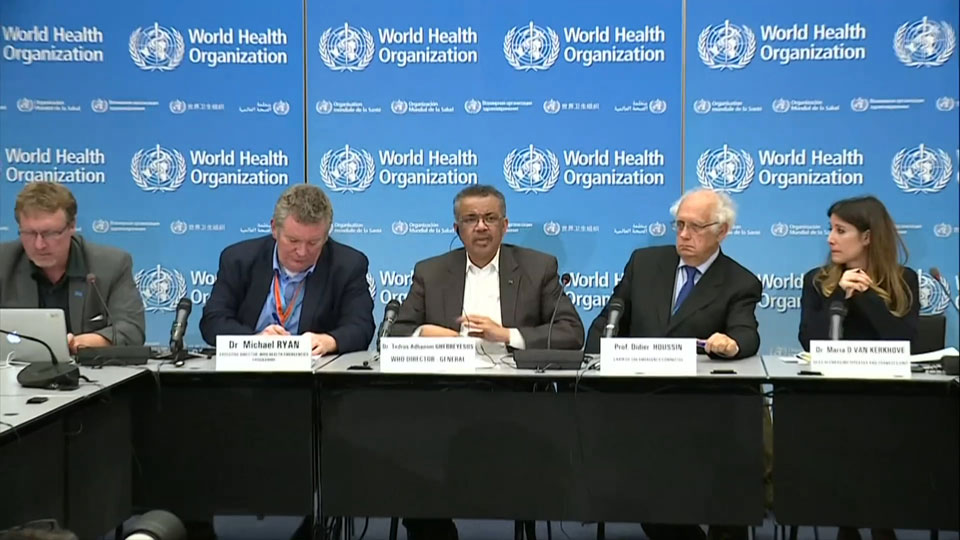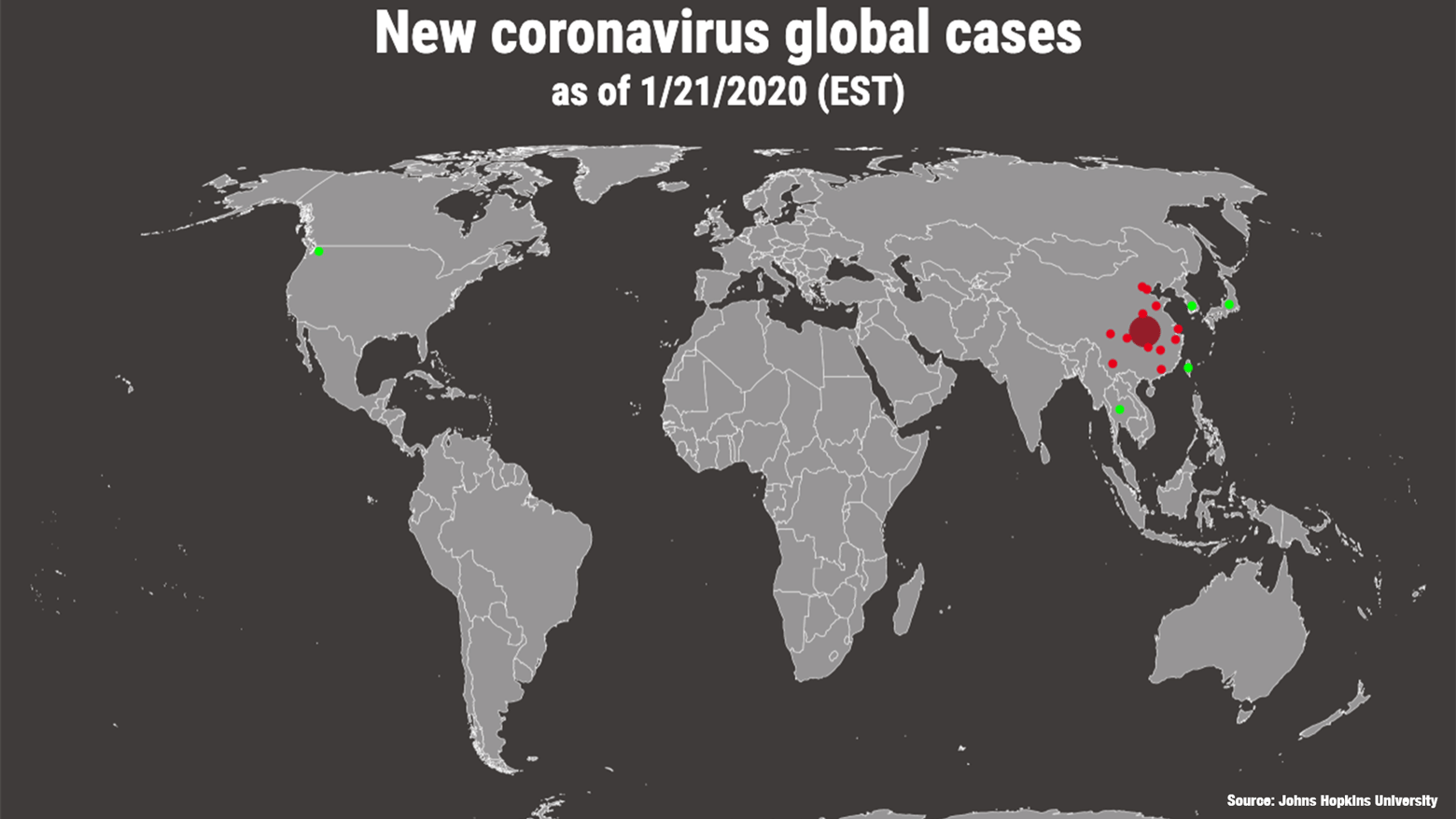WHO Director-General Tedros Adhanom Ghebreyesus made the announcement following an emergency meeting in Geneva on Thursday.

WHO officials say they are especially concerned that the virus could spread to countries with vulnerable medical systems.
Tedros pledged to offer support to those nations, and will encourage the development of a vaccine and treatments.
He also cautioned countries not to stigmatize or promote discrimination, and asked them to share information with the WHO.
Why now?
The WHO held an emergency committee meeting just a week ago, but held back from the declaration because no human-to-human infection had been detected outside mainland China.
But the spread has not slowed and human-to-human infection has been confirmed in Japan and other countries, leading scientists and researchers to advise the WHO to declare a state of emergency.

China says controls in place
After the declaration, China's Foreign Ministry spokesperson Hua Chunying issued a statement saying the country is keeping close communication and cooperation with the WHO.
China's National Health Commission also issued a statement saying their government has been taking rigorous prevention and control measures.
The officials stressed that China has confidence in its ability to control and overcome the virus, and urged the international community to support their efforts.
Other countries step up measures
The US Department of State issued a Level Four travel advisory -- the most severe warning -- on Thursday, telling people not to travel to China.
The WHO is not recommending any travel or trade restrictions based on the current information available.
The US government's decision came after the first case of human-to-human transmission in the country earlier in the day.
US officials say about 200 US citizens who evacuated from Wuhan on Wednesday will remain in isolation for three days at a US Air Force base in California. Those who have symptoms must be tested for the virus and quarantined for up to two weeks.

In Japan, the government is fast-tracking an ordinance that designates pneumonia caused by the new coronavirus as an infectious disease.
The designation was scheduled to take effect on February 7. But the administration decided to move it forward to Saturday.
The ordinance will allow authorities to take such measures as forcibly hospitalizing patients under the country's infectious disease and quarantine laws.
The government is also urging Japanese citizens not to travel to Hubei Province where Wuhan is located, and gave an advisory to nationals staying elsewhere in China to consider a temporary return to Japan on their own.
Chief Cabinet Secretary Yoshihide Suga announced on Friday that the government is considering blocking the entry of travelers to Japan if they are found to be infected.

